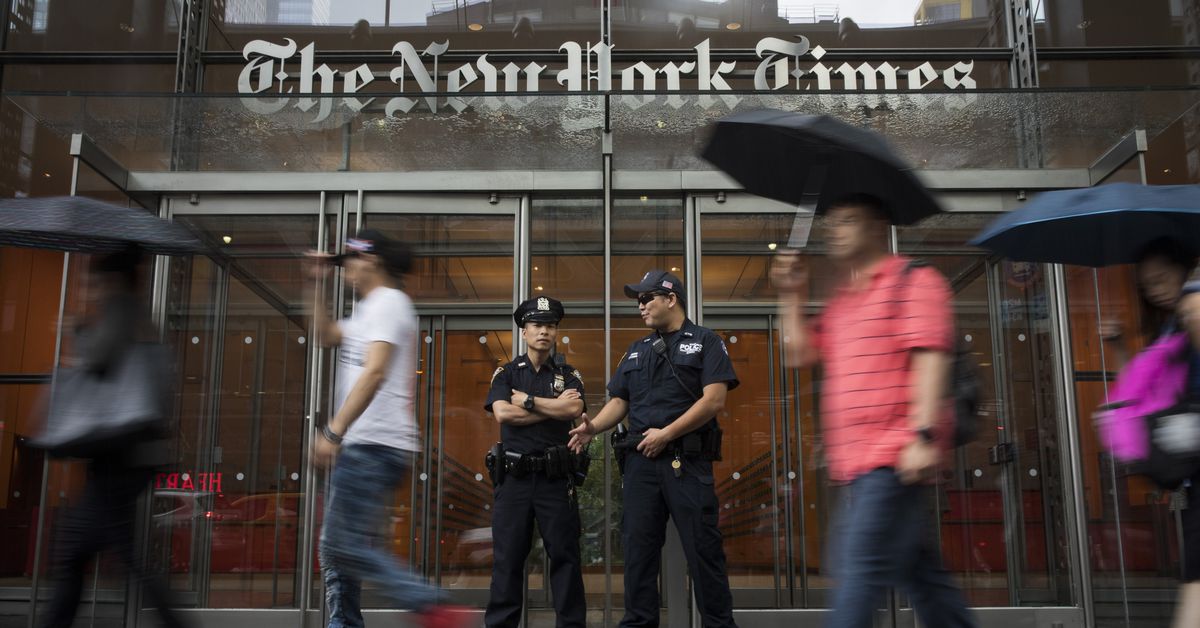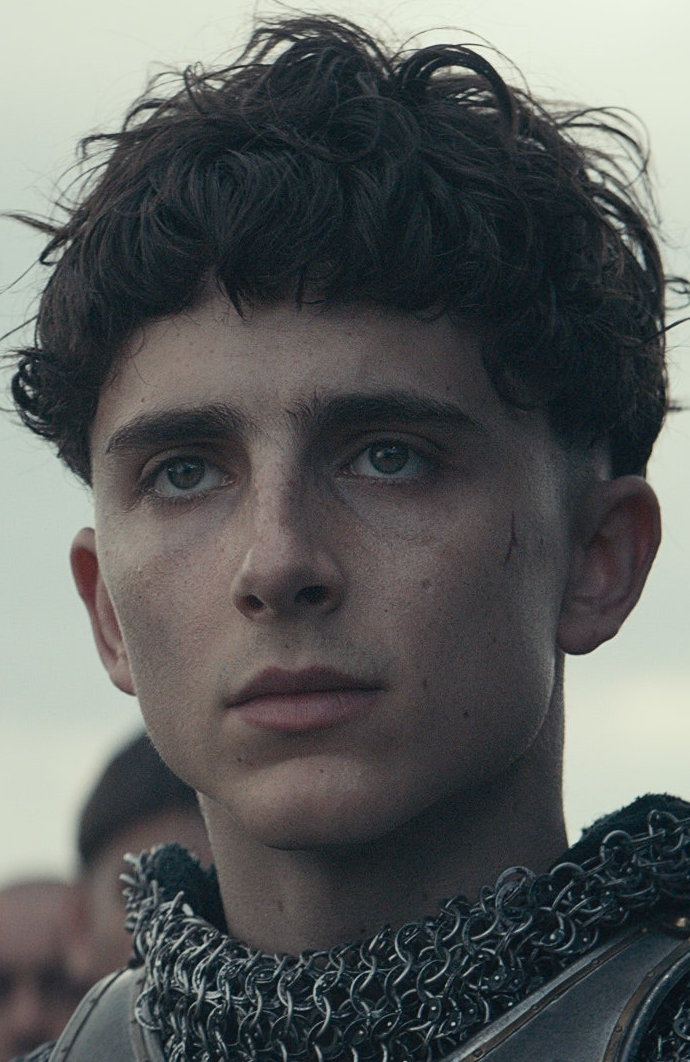A New York Times copyright lawsuit could kill OpenAI::A list of authors and entertainers are also suing the tech company for damages that could total in the billions.
We hold ourselves back for no reason. This stuff doesn’t matter, AI is the future and however we get there is totally fine with me.
AI without proper regulation could be the downfall of humanity. Many pros, but the cons may outweigh them. Opinion.
AI development will not be hamstrung by regulations. If governments want to “regulate” (aka kill) AI, then AI development in their jurisdiction will move elsewhere.
Oh no. Anyways.
The NYT has a market cap of about $8B. MSFT has a market cap of about $3T. MSFT could take a controlling interest I. The Times for the change it finds in the couch cushions. I’m betting a good chunk of the c-suites of the interested parties have higher personal net worths than the NYT has in market cap.
I have mixed feelings about how generative models are built and used. I have mixed feelings about IP laws. I think there needs to be a distinction between academic research and for-profit applications. I don’t know how to bring the laws into alignment on all of those things.
But I do know that the interested parties who are developing generative models for commercial use, in addition to making their models available for academics and non-commercial applications, could well afford to properly compensate companies for their training data.
The danger of the rich and evil simply buying out their critics is a genuine risk. After all, it’s what happened to Gawker when Peter Thiel decided he personally didn’t like them, neutering their entire network.
Regarding OpenAI the corporation, they pulled an incredibly successful bait and switch, pretending first to gather data for educational purposes, and then switching to being a for-profit as soon as it benefited them. In a better world or even a slightly more functional American democracy, their continued existence would be deemed inexcusable.
I completely agree. I don’t want them to buy out the NYT, and I would rather move back to the laws that prevented over-consolidation of the media. I think that Sinclair and the consolidated talk radio networks represent a very real source of danger to democracy. I think we should legally restrict the number of markets a particular broadcast company can be in, and I also believe that we can and should come up with an argument that’s the equivalent of the Fairness Doctrine that doesn’t rest on something as physical and mundane as the public airwaves.
This is the best summary I could come up with:
Late last year, the New York Times sued OpenAI and Microsoft, alleging that the companies are stealing its copyrighted content to train their large language models and then profiting off of it.
Meanwhile, the Senate Judiciary Subcommittee on Privacy, Technology, and Law held a hearing in which news executives implored lawmakers to force AI companies to pay publishers for using their content.
In its rebuttal, OpenAI said that regurgitation is a “rare bug” that the company is “working to drive to zero.” It also claims that the Times “intentionally manipulated prompts” to get this to happen and “cherry-picked their examples from many attempts.”
A growing list of authors and entertainers have been filing lawsuits since ChatGPT made its splashy debut in the fall of 2022, accusing these companies of copying their works in order to train their models.
Developers have sued OpenAI and Microsoft for allegedly stealing software code, while Getty Images is embroiled in a lawsuit against Stability AI, the makers of image-generating model Stable Diffusion, over its copyrighted photos.
In that 2013 decision, Judge Chin said its technology “advances the progress of the arts and sciences, while maintaining respectful consideration for the rights of authors and other creative individuals, and without adversely impacting the rights of copyright holders.” And a 2023 economics study of the effects of Google Books found that “digitization significantly boosts the demand for physical versions” and “allows independent publishers to introduce new editions for existing books, further increasing sales.” So consider that another point in favor of giving tech platforms room to innovate.
The original article contains 1,628 words, the summary contains 259 words. Saved 84%. I’m a bot and I’m open source!
This would bring up the cost of entry for making a model and nothing more. OpenAI will buy the data if they have too and so will google. The money will only go to the owners of the New York Times and its shareholders, none of the journalists who will be let go in the coming years will see a dime.
We must keep the entry into the AI game as low as possible or the only two players will be Microsoft and Google. And as our economy becomes increasingly AI driven, this will cement them owning it.
Pragmatism or slavery, these are the two options.
inshallah
The problem with copyright is that everything is automatically copyrighted. The copyright logo is purely symbolic, at this point. Both sides are technically right, even though the courts have ruled that anything an AI outputs is actually in the public domain.
Works involving the use of AI are copyrightable. Also, the Copyright Office’s guidance isn’t law. Their guidance reflects only the office’s interpretation based on its experience, it isn’t binding in the courts or other parties. Guidance from the office is not a substitute for legal advice, and it does not create any rights or obligations for anyone. They are the lowest rung on the ladder for deciding what law means.
I wasn’t talking about Copyright Office. I was talking about the courts.
This ruling is about something else entirely. He tried to argue that the AI itself was the author and that copyright should pass to him as he hired it.
An excerpt from your article:
In 2018, Dr. Thaler sought to register “Recent Entrance” with the U.S. Copyright Office, listing the Creativity Machine as its author. He claimed that ownership had been transferred to him under the work-for-hire doctrine, which allows the employer of the creator of a given work or the commissioner of the work to be considered its legal author. However, in 2019, the Copyright Office denied copyright registration for “Recent Entrance,” ruling that the work lacked the requisite human authorship. Dr. Thaler requested a review of his application, but the Copyright Office once more refused registration, restating the requirement that a human have created the work.
Copyright is afforded to humans, you can’t register an AI as an author, the same as you can’t register a monkey can’t hold copyright.
Yes. I know. That’s I’ve been saying this whole time.
Then you should amend your comment to:
even though the courts have ruled that anything atributed to an AI
outputsas an author is actually in the public domain.Because as typed, it is wrong.
You must be a blast at parties.
If OpenAI owns a Copyright on the output of their LLMs, then I side with the NYT.
If the output is public domain–that is you or I could use it commercially without OpenAI’s permission–then I side with OpenAI.
Sort of like how a spell checker works. The dictionary is Copyrighted, the spell check software is Copyrighted, but using it on your document doesn’t grant the spell check vendor any Copyright over it.
I think this strikes a reasonable balance between creators’ IP rights, AI companies’ interest in expansion, and the public interest in having these tools at our disposal. So, in my scheme, either creators get a royalty, or the LLM company doesn’t get to Copyright the outputs. I could even see different AI companies going down different paths and offering different kinds of service based on that distinction.
I think it currently resides with the one doing the generation and not openAI itself. Officially it is a bit unclear.
Hopefully, all gens become copyleft just for the fact that ais tend to repeat themselves. Specific faces will pop up quite often in image gen for example.
If LLMs like ChatGPT are allowed to produce non-copyrighted work after being trained on copyrighted work, you can effectively use them to launder copyright, which would be equivalent to abolishing it at the limit.
A much more elegant and equitable solution would be to just abolish copyright outright. It’s the natural direction of a country that chooses to invest in LLMs anyways.
good
Don’t threaten me with a good time!
Fingers crossed!
Oh great more Lemmy anti technology circlejerking







